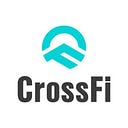What is Governance Token

Tokens are quite popular within the cryptocurrency and Web 3.0 space. And while many crypto investors and traders may be conversant with non-fungible and fungible tokens, there is a wide spectrum of additional tokens to be put into consideration, such as security, utility and platform tokens. However, governance token remains the most notable of these tokens due to their critical role in decentralization. Its holders, to a large extent, help dictate a protocol’s future since they are allowed a specific level of voting power measured by the number of tokens they hold.
Understanding Governance Tokens
Governance token holders help to make decisions that will initiate a protocol’s futuristic endeavors, which may include changes to the whole protocol’s governance or regulatory system. Simply put: there are tokens given by developers to token holders to accost them with ownership in a project’s decentralized pool.
This is possible due to the voting power given to each token holder that’s relative to the number of tokens they hold. Having a large number of governance tokens means more voting power when it comes to potential changes in the project ranging from new features to how its budget is spent. That’s to say if a feature proposal is taken to vote, token holders use their voting power to dictate whether it should be implemented or not.
More still: Governance tokens play essential key decision-making roles in decentralized autonomous organizations (DAOs).
How a Governance Token Works
One major drawback of centralized governance is that shareholders or the board of directors wield full custodial power over a project’s strategic direction in the future. In contrast to this, DAOs (decentralized autonomous organizations) do not need centralized decision-makers. Since decisions about the future of the corporation are paramount, governance tokens come into play.
The inclusion of governance tokens in DAOs facilitates a decentralized governance mechanism hinged on proposals and a community voting system. These proposals include revisions on the developer assets, modification of distributed rewards, and budgetary fees. If a governance proposal is brought to vote, token holders are allowed to cast their vote on the blockchain. In most cases, the voting power of a token holder is directly proportional to the number of tokens they hold. However, most times, a DAO might have its peculiar governance methods.
Two governance methods can be found in decentralized governance — On-chain governance and off-chain governance. On-chain governance occurs when decisions are immediately translated into readable codes. This way, developers can display their proposals on-chain for approval using a voting system, and this helps in fast implementation. On the other hand, off-chain governance renders a decision-making process that occurs on a social level before developers can hardcore them to the project.
Pros of Using Governance Tokens
Decentralized Governance System
One major benefit of governance tokens is that they facilitate decentralized governance. Most Web 3.0 project developers can implement decentralization with the help of governance tokens. And there’s no doubt that the existence of governance tokens would affect DeFi solutions too.
Efficiency
Governance tokens offer greater efficiency. Its holders have a sense of belonging in the projects as they’re part of the decision-making process. Not only does this foster active participation as they’d love to see the project grow, but they also result in efficient results since efficient decisions are being made.
Collaboration Opportunities
One notable benefit of governance tokens can be seen in how it fosters collaboration among holders. Once a proposal is brought to the table, token holders are allowed to collaborate during the decision-making process. They can propose how they can vote as well as obtain incentives to reach out to other community members who might be interested in voting the same way.
Cons of Using Governance Tokens
Although governance tokens bring multiple advantages to Web 3.0 and cryptocurrency projects, there are a couple of challenges that corporations issuing governance tokens should take into consideration.
High Voting Power Among Large Investors
Those investors who make exceedingly large investments and have access to a commendable amount of governance tokens, can own a great measure of voting power thereby threatening the main purpose of blockchain which is decentralization.
Potential for Bad Actors
Another serious challenge is the potential for malicious actors to use their voting power to initiate decisions that are only for their own benefit. A bad actor who wields a large amount of voting power can result in poor decisions which will affect the community and community members at large.
CrossFi is a cross-chain protocol that provides liquidity for Filecoin staking and rewards.
CrossFi Official Website: https://crossfimain.com
CrossFi DApp Address: dapp.crossfimain.com
CrossFi Official Twitter Account: https://twitter.com/globalcrossfi
CrossFi Official Discord Group: https://discord.gg/UKGSX3VBY3
CrossFi Official Global Telegram Group: https://t.me/crossfimain_en
